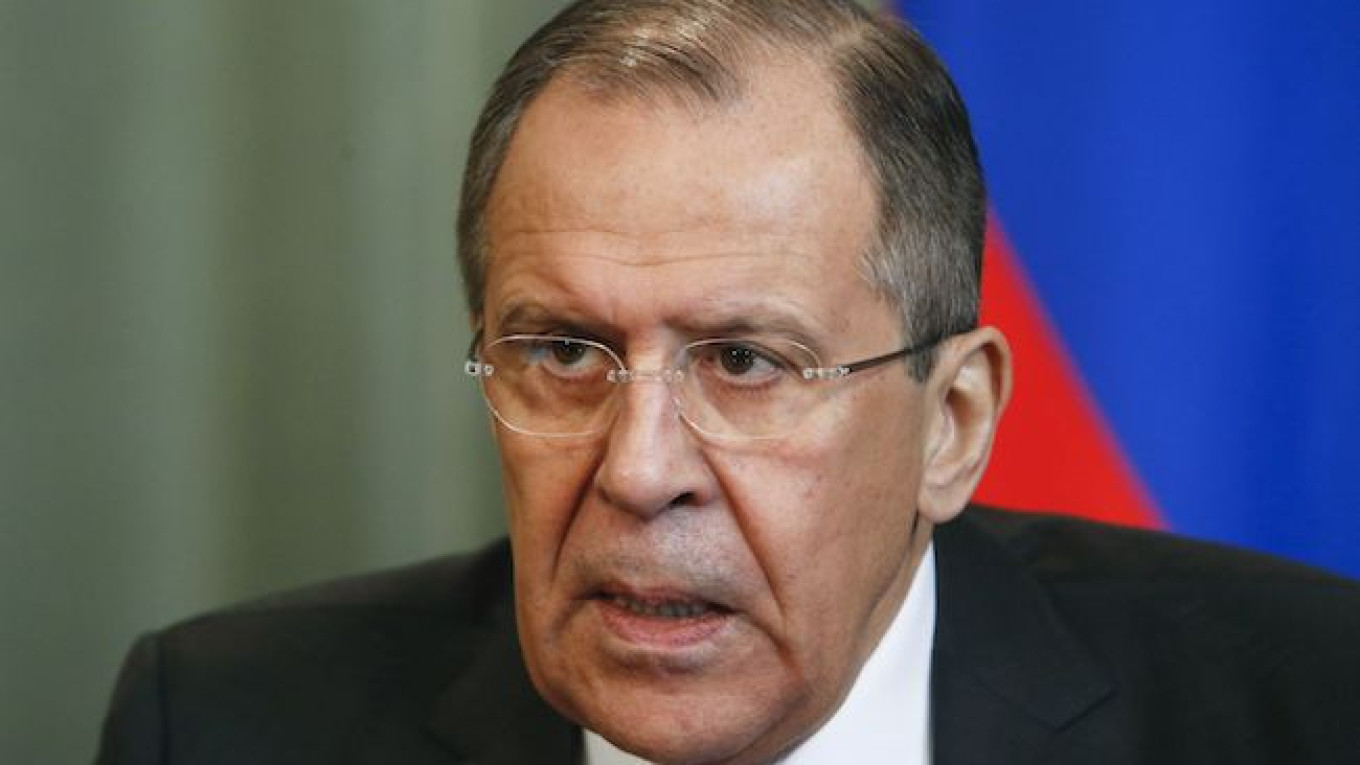Russia appealed to Germany and France on Saturday to ensure Kiev does not try to incite violence in east Ukraine to encourage the United States to send Ukrainian forces lethal weapons.
Paris and Berlin helped mediate a peace deal in the Belarusian capital Minsk on Feb. 12 to try to end fighting between government forces and pro-Russian separatists in eastern Ukraine but the truce remains fragile.
In an interview with Russian television, Russian Foreign Minister Sergei Lavrov said he was concerned Kiev might stage "provocations" to try to persuade the United States that it should aid Kiev by sending it lethal weapons.
"Provocateurs in Kiev ... could try to 'whip something up' in the expectation that this will influence the world public and weapons will flow into Ukraine," he told the new program Vesti on Saturday with Sergei Brilev.
"I am convinced that Berlin and Paris, as the most important players ..., should prevent such a turn of events."
Lavrov also repeated Russia's opposition to United Nations peacekeepers being sent to the east.
The United States has been considering whether to provide lethal weapons to Ukraine but has taken no decision on this yet.
Kiev accuses Moscow of not carrying out the terms of the Minsk agreements. It and the West say Russia backs the separatists in east Ukraine with weapons and troops but Moscow denies this.
More than 6,000 people have been killed in almost one year of fighting in the east. The truce there is fragile, with Moscow and Kiev clashing publicly over who is to blame for the failure to carry out all the steps outlined in the Minsk agreements.
The European Union and the United States have imposed economic sanctions on Russia over the Ukraine crisis, which has caused the worst strains in relations between the West and Moscow since the end of the Cold War.
EU leaders decided on Thursday that the sanctions would stay in place until the peace deal is fully implemented, effectively extending them to the end of the year if need be.
A Message from The Moscow Times:
Dear readers,
We are facing unprecedented challenges. Russia's Prosecutor General's Office has designated The Moscow Times as an "undesirable" organization, criminalizing our work and putting our staff at risk of prosecution. This follows our earlier unjust labeling as a "foreign agent."
These actions are direct attempts to silence independent journalism in Russia. The authorities claim our work "discredits the decisions of the Russian leadership." We see things differently: we strive to provide accurate, unbiased reporting on Russia.
We, the journalists of The Moscow Times, refuse to be silenced. But to continue our work, we need your help.
Your support, no matter how small, makes a world of difference. If you can, please support us monthly starting from just $2. It's quick to set up, and every contribution makes a significant impact.
By supporting The Moscow Times, you're defending open, independent journalism in the face of repression. Thank you for standing with us.
Remind me later.



